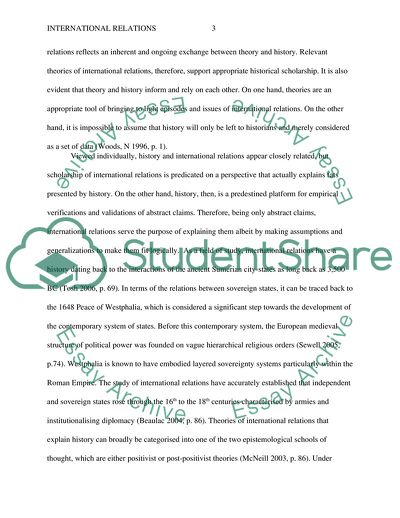Cite this document
(The Field of International Relations Is Successful in Explaining the Coursework Example | Topics and Well Written Essays - 2000 words, n.d.)
The Field of International Relations Is Successful in Explaining the Coursework Example | Topics and Well Written Essays - 2000 words. https://studentshare.org/social-science/1847061-history-may-provide-the-description-but-it-is-the-task-of-international-relations-to-provide-the-explanation-discuss
The Field of International Relations Is Successful in Explaining the Coursework Example | Topics and Well Written Essays - 2000 words. https://studentshare.org/social-science/1847061-history-may-provide-the-description-but-it-is-the-task-of-international-relations-to-provide-the-explanation-discuss
(The Field of International Relations Is Successful in Explaining the Coursework Example | Topics and Well Written Essays - 2000 Words)
The Field of International Relations Is Successful in Explaining the Coursework Example | Topics and Well Written Essays - 2000 Words. https://studentshare.org/social-science/1847061-history-may-provide-the-description-but-it-is-the-task-of-international-relations-to-provide-the-explanation-discuss.
The Field of International Relations Is Successful in Explaining the Coursework Example | Topics and Well Written Essays - 2000 Words. https://studentshare.org/social-science/1847061-history-may-provide-the-description-but-it-is-the-task-of-international-relations-to-provide-the-explanation-discuss.
“The Field of International Relations Is Successful in Explaining the Coursework Example | Topics and Well Written Essays - 2000 Words”. https://studentshare.org/social-science/1847061-history-may-provide-the-description-but-it-is-the-task-of-international-relations-to-provide-the-explanation-discuss.


